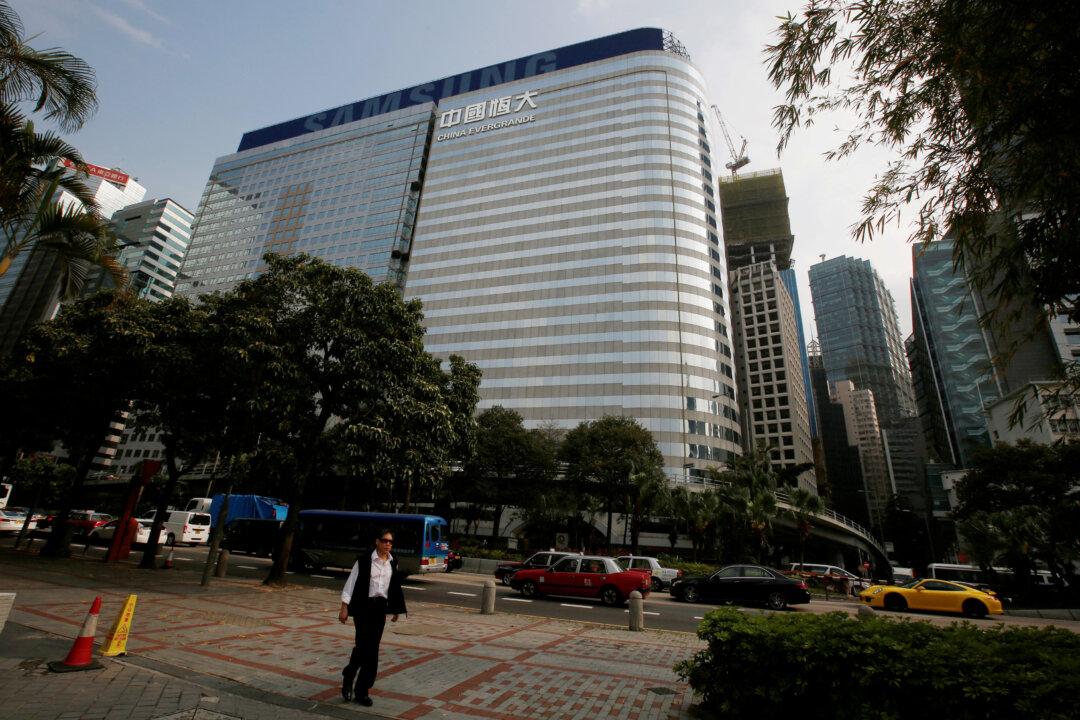HONG KONG—China Evergrande Group’s $1.8 billion bond sale this week has sent a chill through Asia’s dollar bond markets, with the dizzying coupons offered by the property developer casting doubts on fundraising plans of rivals.
Chinese developers, a perennial feature of the region’s junk bond markets and formerly an investor favorite, are already facing a cooling property market, rising interest rates and market volatility driven by economic jitters.





